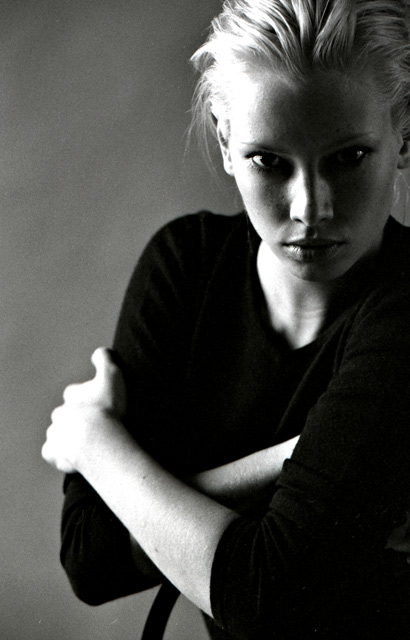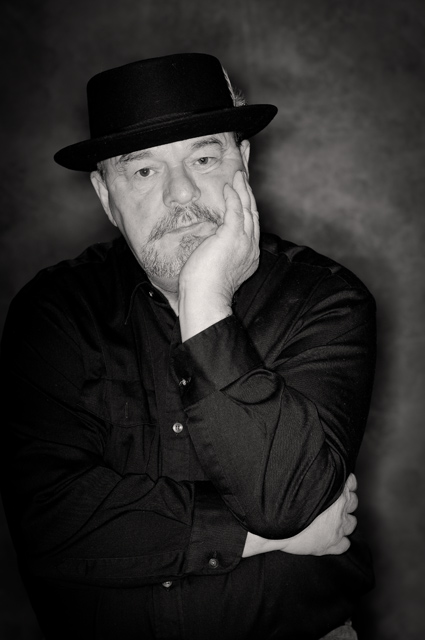 |
 |
Last Updated: Dec 15th, 2012 - 23:02:00 |
Making a living with your photography is the dream of many a photographer. Like most photographers we start out as an enthusiast and then we will photograph a friends wedding or take some family portraits for a relative; the next thing you know, the phone is starting to ring asking to hire you. If you embrace the opportunities that you get and start charging money for the services you perform you might see that there is the possibility of you making real money for the work you do. Eventually you might find that you are getting so much work it's time to make the transition to full time self employment.
 |
| © Brian Tremblay |
If all this sounds like where you are, but you have not yet taken the leap to becoming a full time pro, here are a few things you might want to consider. These are some of the same factors that I thought about and affected me to make the transition to full time professional photographer.
1. Do you hate your present job?
If you do, then this is a sure sign that you should be building your photographic business in order for you to quit the job you hate. I loathed having to get up in the morning or leave at night (I worked shift work) to go to what used to be my job. It was actually making me physically sick to go to work and to be there. I didn't care about my work and I was not performing at the best of my ability. I needed to get out and photography was going to help me do that.
 |
| © Brian Tremblay |
2. Are you continually trying to improve your photography with workshops, courses and other learning materials?
If you are serious about becoming a pro then you have to make an investment into your education as a photographer. I don't care if you have a degree from an accredited university or college you still need to be honing your skills in order for you to succeed at this. There is a wealth of learning materials and workshops out there for you to participate in. Many of the leaders in this also create DVD workshops that you can purchase which are a lot less than travelling to take the course. I use them all the time.
 |
| © Brian Tremblay |
3. Are you monitoring you pricing your work like a real photography studio so you can make real profit and pay yourself a proper wage?
One of the things I strived to do was make sure my work wasn't priced so low that it made me look either like an amateur who had no idea what he was doing or that would pigeon hole my photography as a great place to go when you want a good deal. Of course you won't be able to go out and charge what a long established photographer will charge, but you can price for profitability. Remember: if you treat your business like a hobby it will pay you like a hobby; if you treat your business like a business it will pay you like business. Marking something up from the price it actually costs your business isn't the right way to go about it either! You have to take into consideration your operating expenses (even if you work out of your home!), your equipment, your time and what you kind of money you plan on taking home. If you don't factor these things in you will find yourself floundering and will soon be consumed and drowned by photographers who have thought about all these things and are in it for the long haul.
 |
| © Brian Tremblay |
4. What kind of photographer do you want to be?
The first rule to this category is shooting what you love to shoot and become known for that type of photography. In some markets specializing can work if it has a large enough population base in order to support that specialty. In my market, I have to do weddings and portraits to make a living. In the sub categories of portraits I do families, babies and boudoir work. But, I try to show only the work that I love to create. Those are the moody, atmospheric and dark portraits and weddings that allow me to create an edgy look to them. I will not photograph sports teams, dance schools, do restoration work, passport photos, etc. These are too much work for the amount of profit they bring in and, more often, result in the biggest headaches. When someone does call asking for these things I have a list of people I refer them to.
 |
| © Brian Tremblay |
And the same goes for portraits and weddings. I meet before hand with all my clients to find out if they want what I do or like what I do. If they don't and have other ideas on how their portrait or wedding should look then will often not do the job and refer them to someone else. An example of this is someone called and asked if I would do their family portrait wearing Addams Family costumes. They weren't familiar with my work having never seen it before and really didn't want an artistic piece they could hang on their walls, they just wanted someone to take a silly picture of them. I explained that I wasn't able to create that for them and referred them to another photographer who might be able to help them. I wanted to reinforce the brand I created and nothing was going to deter me from that vision!
 |
| © Brian Tremblay |
5. Are you ready for the challenge?
Not everyone can handle the insecurity of not having a regular paycheck. It can mess with some folks' psyches. They don't have the strength, courage and confidence to do this day in and day out and be responsible for the amount of money they bring home to feed their family. Also, you have to be able to sell and market yourself. Remember: you are your business and your business is you!
If you cannot be a tireless self promoter or have the courage to walk away from a regular paycheck, then going into business for yourself (not just as a photographer) may not be the best thing for you. I know there are still some trying times and sleepless nights in my life. But I know this is what I want to do and I wouldn't go back to what I was doing before.
You have to be able to sell "you" and convince clients you're the best person for the job. You have to be master and commander of your life and business. If clients don't like you they won't work with you - no matter how good your work is. You are CEO, CFO, dishwasher, wet nurse, bookkeeper, manager and pit boss. Can you wear all those hats?
 |
| © Brian Tremblay |
I hope this article didn't scare you too much. If it did, then maybe that's not a bad thing. The photography industry will only improve by hanging onto those who have all those commitments (and some more) to their business and their craft.
I've always been a fan of the Ray Bradbury quote: "First you jump off the cliff and build your wings on the way down." You can play it safe and wonder what might have been or you can take yourself and your art seriously and put yourself out there.
This article brought to you by PHOTOWORKSHOP.COM. Let us know if you found this article useful and tell us what kinds of articles you'd like to see in upcoming issues. Send your comments and ideas to the editor.
Top of Page
|
|
| |
